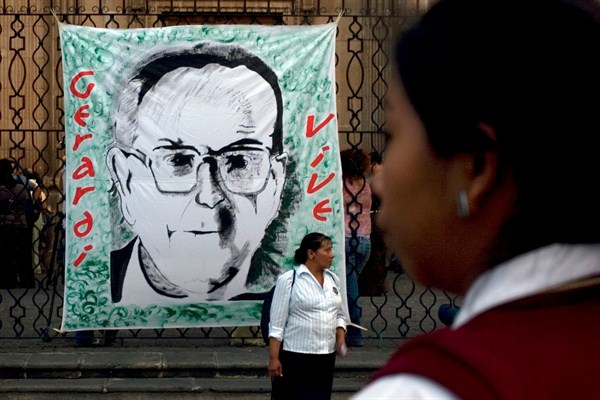LA JOYA, El Salvador—On a Thursday morning in October 2017, Rosario Lopez, a 72-year-old Salvadoran woman with square wire-rimmed glasses and dark, gray-speckled hair pulled into a bun, took the stand in a small courtroom in northeastern El Salvador. She had been called to provide testimony in a trial stemming from the worst atrocity of El Salvador’s 12-year civil war.
The massacre had unfolded in and around the small mountain village of El Mozote in December 1981, still in the early period of a grueling, grinding conflict between the military government, which took power in a coup in 1979, and leftist rebels. Over the course of three days, government soldiers, having decided that all residents of El Mozote and neighboring towns were either active insurgents themselves or sympathetic to them, shot and killed nearly 1,000 civilians, mainly women and children. A full accounting of the dead didn’t emerge until 2017, when the Salvadoran government released an official list of victims in compliance with a ruling from the Inter-American Court of Human Rights.
Asked to give a statement in court that morning in October 2017, Lopez began listing the names of the 24 family members she lost at El Mozote. Seated before her in the dock was Gen. Juan Rafael Bustillo, one of 18 military officers who have been charged in separate cases over the massacre. Back in 1981, Bustillo was head of the Salvadoran Air Force, which provided the helicopters that brought troops to the area, according to the Inter-American Court of Human Rights ruling, which was handed down in 2012.

